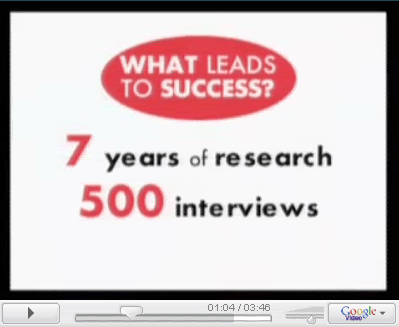There has been a lot of talk about time management lately.
Time management is a struggle for just about everyone in today's fast-paced world. On average, we receive at least 250 inputs a day, including emails, voice mails, and visits from co-workers and clients. Of course that figure doesn't include the thousands of ideas that go through our minds each day. How can we manage all of these details?
I would like to suggest that when learning about time management carefully select someone whose strategy is efficient and effective.
When you want to learn something, find some one who learned it quickly and easily, then do it his/her way, using his/her system of organizing information. when you attempt to learn things in a way that does not work then you stay confused or worse, incompetent. when you learn a way that does work, confusion gives way understanding in a predictable and therefore repeatable process.
I present you with 2 amazing people in the time management field, David Allen and Jason Womack.
I hope you will find value in these interviews.
Top Time Management Tips
In the first interview David Allen discusses how his Time Management processes surpass mere organization, and how it helped him to become such a success.
David Allen is the best-selling author of Getting Things Done, which has so far sold more than a quarter of a million copies.In this conference call
David discusses:
- Achieving the "mind like water" serenity through proper organization
- The inherent flaws in most "to-do" lists
- The Two-Minute Rule for incoming tasks
- How and why to categorize tasks by their location -- office, home, road, etc.
If you would like to obtain a FREE CD copy of this Interview please click: Send Me The FREE CD
Systems to Manage Your Time & Workflow
As a coach for the David Allen Company, Jason Womack trains professionals around the country how to enhance their productivity. He teaches individuals to implement the principles explored in David Allen's best-selling book, Getting Things Done, through his numerous speaking engagements as well as personalized coaching sessions.
Topics discussed include:
- Focus is essential when it comes to combating task saturation.
- If your system isn't working, then step back and examine how you're collecting data.
- Once you've collected data, you must process it in such a way that you can address it at the appropriate time and forget about it until then.
- It's important to ask yourself the right questions when processing in order to ensure a positive outcome.
- After processing data, you have to have a system in place to enable you to organize it.
- There's no one system that works for everyone, rather each person must create one that meets their needs.
- You may choose to incorporate technology into your system, and there are several options available.
- What purpose does Outlook serve?
- The Weekly Review is a key ingredient of a successful system.
Play Interview:


































No comments:
Post a Comment